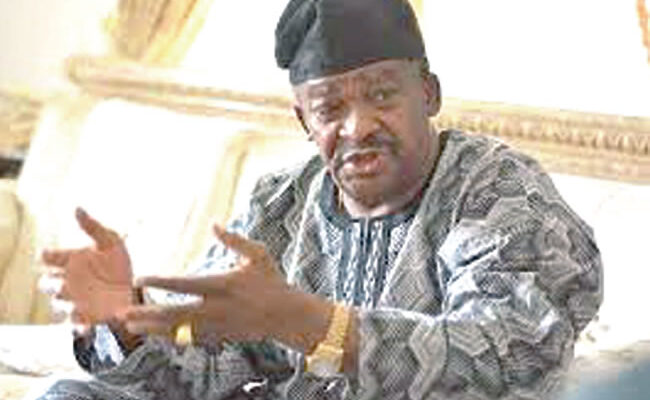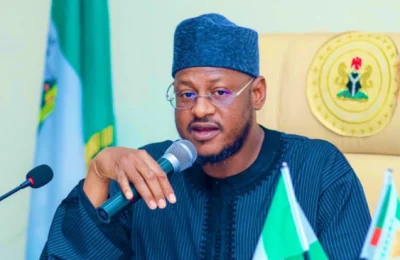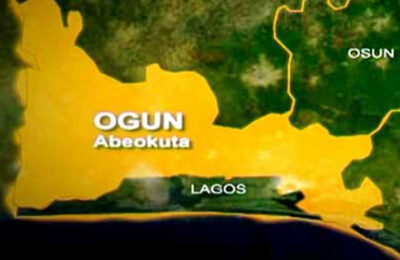

By Kunle Oderemi
ABOUT 11 days to his birthday, elder statesman, General Donaldson Oladipo Diya has passed on. His demise at his country home, Odogbolu in Ogun State is coming after a divine intervention that saved his life when a special military tribunal sentenced him to death over alleged phantom coup plot. Urbane and cultured, Diya was a lawyer and former Chief of General Staff (CGS) to the late Head of State, General Sani Abacha. His death marks yet another gradual transition members of the elites with distinguished professional career in the Nigerian Armed Forces.

Born on April 3, 1944 in Odogbolu in Ogun State, Diya joined the Nigerian Army at 20 in 1964. After training at the Nigerian Defence Academy and the Army School of Infantry, Fort Benning, Georgia, in the United States, he became the Commanding Officer of 101 Battalion between 1967 and 1970. He was made the governor of Ogun State in 1984 by the Major General Muhammadu Buhari administration . When the government was toppled in a palace coup and General Ibrahim Babangida became a military president, Diya was made the General Officer Commanding, GOC of 82 Division, Enugu and member of the Armed Forces Ruling Council (AFRC). The debacle over the annulment of the June 12, 1993 presidential election forced Babangida to step aside and hand over power to Chief Ernest Shonekan as the Head of the Interim National Government (ING). Shonekan later ‘resigned’ from office and General Sani Abacha assumed power, with Diya becoming the Chief of General Staff (CGS) and Second-in-Command to the new leader.
However, Diya cut his teeth in governance and public administration as the military governor of his state of origin. He was said to have distinguished himself through practical demonstration of discipline and dedicated service. According to incumbent Governor Dapo Abiodun, the deceased Diya was among the leaders behind the evolution and development of the state. Though for a while, he had kept a low profile as a private citizen; his rise to prominence is largely underscored by his military career, which ironically, was also characterised by twists and turns. The annulment of the June 12 election stirred a big storm.

Phantom coup

On April 28, 1998, Diya and five other top military officers were sentenced to death by a Special Military Tribunal headed by Major General Victor Malu that sat in Jos, Plateau State. The others included Major General A. I. Olarenwaju, Major General A K Adisa, Lieutenant Colonel O. O. Akiyode, Major O. O Fadipe and engineer A A Adebanjo for alleged involvement in coup plot. In fact, a total of 30 persons were tried by the tribunal with four sentenced to life imprisonment, six bagged imprisonment ranging fronm two years to 30 years each, while the rest were discharged. The Abacha government had alleged that the suspects had planned to oust the regime from power on “the night of Saturday 20th December 1997” The verdict which was delivered in 30 minutes sparked global outrage and calls on the Abacha regime for restraint. Diya had vehemently denied hatching such plot and repeated that it was a set up to get rid of him by some elements. He did not mince words on his conviction about the plot when he spoke at the inaugurtaion of the tribunal on February 14, 1998. He declared: “This is the first time a case of setting up is becoming a coup case. I’m not going into details of that now because this is a clear case of set-up. I’m the target and it is organised right from the top.”
While Diya was claimed to have been the arrowhead of the purported plot, Adisa was alleged to be the financier. Diya and others sentenced to death by the tribunal were Colonel Lawan Gwadame; Bello Fadile, Rowland Emokpae; O. Oloruntoba and S. E. Oywole. There was spontaneous furry in the United Nations, the Commonwealth, United States and the European Union; they expressed shock over the conviction and called for justice. But fate later played a fast one on Abacha. His sudden death staved off the hang man’s noose from the necks of Diya and the others convicted for the alleged coup. Thanks to the reprieve granted by the new Head of State, General Abdulsalami Abubakar.
Before his arrest , Diya had also escaped a bomb blast at the the federal capital, Abuja. Incidentally, he was on his way to stand in for Abacha at the burial of the mother of another top military officer, Major General Lawrence Onoja (retd) in Benue state. Another phase of his travails was the decision by the authorities to replace his security details with members of Special Bodyguards, who took orders from a junior officer close to the corridors of power. But the most curious that elicited public outrage was how he was dehumanized after his arrest over the alleged coup and subsequent trial at the tribunal. The action drew worldwide condemnation because of his rights which were utterly abused.
Interventions over incarceration of MKO Abiola, June 12
With the hurried exit of Babangida from Aso Rock Villa and attendant enthronement of Shonekan as interim leader to steer the ship of state, some observers had thought that the seething anger of June 12 annulment would subside. But the advocates sustained the pressure until Abacha literally pushed him out of the corridor of power. There were insinuations then that Babangida deliberately left Abacha in the system as the most senior military officer for tactical reasons. So, with Abacha taking over the reins of power, Diya became the CGS. He soon hit the ground running making conscious and deliberate moves to dialogue with the frontline leaders of June 12 advocates, including chieftains of the National Democratic Coalition (NADECO). While some were circumspect over the overtures for fear that it might be a ploy to break their ranks, a few keyed into the consultation and talks. With time, Diya recorded a breakthrough when some of the leaders of the leaders offered ministerial appointments accepted to come on board. The development created a hoopla with a few leaders alleging compromise, just as there was confusion over claims that the Abacha regime reached an agreement to hand over to the symbol of the June 12 struggle, the late Chief MKO Abiola. Those leaders who joined the Abacha cabinet claimed to have received the blessings of the leadership of the June 12 struggle after due consultations.
But Diya said if there was any semblance of such agreement at all, it was only implied. He said what he knew that took place was consultation. According to Diya, “The consultation was merely on what to do because everybody was becoming very concerned. Everybody was worried. The nation was virtually grinding to a halt. You know, even the military became disturbed because we were so scared of the reaction of the junior officers. It is better for us at that level to arrest the situation. I mean it is true we consulted so many people and most of them advised that the only way out now was for the military to take over, normalize the situation and move on to a democratically elected government.”
Aborted bail application for MKO
Diya had also been pivotal in the bail application for Abiola from incarceration following his determination to reclaim his June 12 mandate. The personal physician to Abiola, the late Dr Olu Falomo, had consistently cried out over the worsening health status of his patient in solitary confinement by Abacha but the government ignored Falomo and the international community on the predicament of Abiola behind bars. Diya led a couple of other prominent persons, including the late strong man of Ibadan politics, Alhaji Lamidi Adedibu to secure bail for Abiola. The stiff résistance from some forces, especially on the ground that he must not compromise on his mandate aborted the move. The authorities were said to have given two conditions to breathe the air of freedom: jettison June 12 mandate and accept to be confined to Lagos.
Abacha constitutional conference
Diya played a key role in galvanizing the civil class to key into the project. He was particularly instrumental in lobbying the south West to join the conference since other zones had acquiesced to the conference. He partly justified the need for the conference on what he said was the trend that often trails the conduct of elections in the country. He added: “So, some influential persons in Yoruba land became delegates. He said: “So, let’s have the opportunity to look into all our problems in all ramifications. I think this is an opportunity.”
On the annulment of June 12, Diya in an interview, shortly after Abacha usurped power, said the action was not a collective action by the top echelon of the ruling military regime. He alleged that it was the sole action of the then military president. “He didn’t consult anybody. I was the 8th or 9th in the hierarchy of the Armed Forces at that time. Babangida won’t say he called the Armed Forces officers to discuss the annulment before the annulment. He only called us after the annulment. I was one of the few officers who raised objection to it, because we asked him: “where was the meeting held where this annulment was discussed?”
In conclusion, Diya may have gone, but his life and time as a top military brass, administrator and statesman will remain a subject of public discourse. His close shave with death, battle against the Establishment on matters of national interest, humility and simplicity cannot be over-emphasised.
READ ALSO FROM NIGERIAN TRIBUNE








